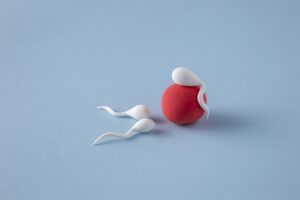In today’s world, environmental toxins are an unavoidable part of daily life. From the air we breathe to the food we eat, these substances are widespread and can significantly affect our health, particularly fertility. Understanding their impact on reproductive health is essential for anyone trying to conceive.
These toxins can come from various sources, including industrial pollutants, pesticides, and household chemicals. They may disrupt natural bodily functions, leading to hormonal imbalances and cause infertility in both men and women. As awareness grows, more people are actively seeking ways to limit their exposure.
By learning how environmental toxins affect fertility, you can take informed steps to protect your reproductive health. This article will examine their impact on both male and female systems, highlight common fertility-disrupting toxins, and provide practical strategies to reduce exposure.
How Environmental Toxins Affect Male Fertility

Male infertility is particularly vulnerable to environmental toxins. Substances such as heavy metals, pesticides, and industrial chemicals can reduce sperm count, impair motility, and alter sperm morphology — all factors that significantly lower the chances of successful conception.
One of the main ways these toxins affect male fertility is through hormonal disruption. Chemicals like phthalates and bisphenol A (BPA) are known endocrine disruptors that interfere with hormonal balance. This can result in reduced testosterone levels and impaired sperm production.
Additionally, many environmental toxins contribute to oxidative stress, which can damage sperm DNA and further impact fertility. Antioxidants help counteract this stress, so a diet rich in fruits and vegetables is beneficial. Still, minimizing exposure to harmful substances remains the most effective strategy for preserving reproductive health.
How Environmental Toxins Affect Female Fertility
Just as male fertility is affected, female reproductive health is also vulnerable to environmental toxins. Women are exposed to various chemicals that can disrupt the menstrual cycle, affect egg quality, and impair overall fertility. Understanding these risks is essential for those planning to start a family or considering options such as IVF treatment to support their reproductive journey.
Endocrine disruptors such as PCBs and dioxins interfere with hormonal regulation, leading to irregular cycles and ovulation problems. These imbalances can make natural conception more difficult, highlighting the need to limit exposure to such substances.
Beyond hormonal disruption, some toxins can directly affect reproductive organs. For example, certain pesticides have been linked to conditions like endometriosis and polycystic ovary syndrome (PCOS), both of which can reduce fertility. Awareness of these risks empowers women to take proactive steps in protecting their reproductive health.
Common Environmental Toxins Linked to Fertility Issues
Several environmental toxins contribute to fertility problems. Understanding these substances can help you reduce exposure and protect reproductive health.
- Phthalates: Commonly found in plastics, personal care products, and household goods. Phthalates are known to disrupt the endocrine system, affecting both male and female fertility.
- Bisphenol A (BPA): Often used in the production of plastics and resins, BPA can mimic estrogen in the body, leading to hormonal imbalances and reproductive issues.
- Pesticides: Widely used in agriculture, pesticides can be ingested through food and water. These chemicals have been linked to various fertility problems, including reduced sperm quality and menstrual irregularities.
- Heavy Metals: Lead, cadmium, and mercury are heavy metals that can accumulate in the body, causing oxidative stress and damaging reproductive cells.
Simple changes like choosing organic foods, avoiding plastic containers, and using natural personal care products can help reduce exposure and support fertility.

The Role of Endocrine Disruptors in Reproductive Health
Endocrine disruptors significantly impact reproductive health by interfering with the body’s natural hormone production and regulation, leading to various fertility issues.
These chemicals can mimic or block natural hormones, causing imbalances that affect reproductive functions. In men, this may reduce testosterone levels and impair sperm production and quality. In women, endocrine disruptors can cause irregular menstrual cycles and disrupt ovulation, making conception more difficult.
Reducing exposure involves conscious choices about the products you use and the foods you consume. Opting for BPA-free products, avoiding processed foods, and choosing organic produce can help minimize risk and support reproductive health.
Preventive Measures to Reduce Exposure to Environmental Toxins
Taking proactive steps to minimize exposure to environmental toxins is crucial for protecting your fertility. Implementing these measures can reduce risk and promote reproductive health.
Dietary Choices:
- Organic Diet: Prioritize organic fruits and vegetables to reduce pesticide exposure.
- Whole Foods: Focus on whole, unprocessed foods to limit intake of synthetic additives.
Product Selection:
- Eco-Friendly Products: Choose eco-friendly personal care and cleaning products to avoid harmful chemicals.
- BPA-Free: Opt for BPA-free containers and avoid heating food in plastic.
Environmental Awareness:
- Clean Air: Improve indoor air quality with air purifiers and by maintaining good ventilation.
- Reduce Waste: Minimize plastic waste and support sustainable practices.
Incorporating these measures into your routine creates a healthier environment that supports fertility and overall well-being.
Seeking Professional Help: When to Consult a Fertility Specialist
If you suspect environmental toxins are affecting your fertility, consulting a fertility specialist can provide valuable insights and guidance. They can help you understand how environmental factors impact your reproductive health and develop a personalized plan.
A specialist can conduct assessments like hormone testing and semen analysis to identify underlying issues and recommend lifestyle changes or treatments to improve your chances of conception.
Seeking help early can make a significant difference. If you’ve been trying to conceive for over a year without success, or have risk factors such as toxin exposure, consider reaching out for support.

Conclusion
Understanding the impact of environmental toxins on fertility is essential for anyone looking to start a family. By being aware of the risks and taking proactive steps to reduce exposure, you can protect your reproductive health and improve your chances of successful conception.
Awareness and action are key to safeguarding your fertility. By implementing simple lifestyle changes, such as choosing organic foods and natural products, you can create a healthier environment for yourself and your future family.